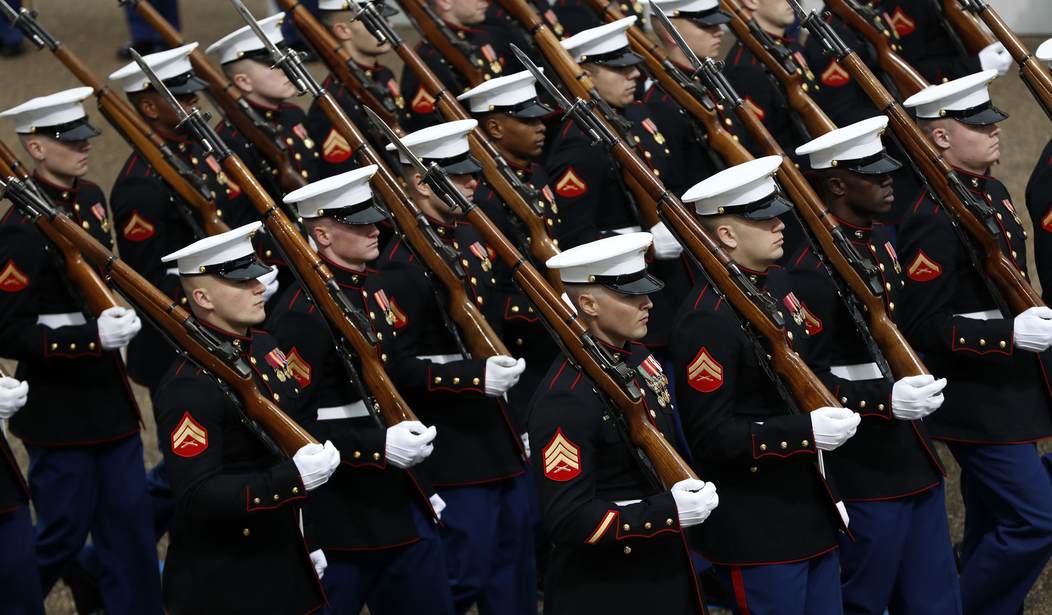Americans want to honor the veterans and service members who sacrifice so much to defend our freedom. That’s why we have holidays like Memorial Day. Yet members of our military deserve more than speeches and parades. They deserve parental choice in education.
“[W]hile our service members fight for our freedoms abroad, too many military families are denied education freedom at home,” according to former deputy U.S. Secretary of Education Mitchell Zais. And he should know: Zais served in the U.S. Army for 31 years and retired as a brigadier general.
The lack of parental choice in education hits military families especially hard because they can’t just pick up and move if their neighborhood public schools aren’t meeting their children’s needs. Not only does a lack of educational options hurt military families, it has significant negative implications for national security.
More than one-third of military families say dissatisfaction with their children’s education is “a significant factor” affecting their decision to continue serving. According to Zais, the commanding general of one of the Army’s largest training installations reports having difficulty recruiting drill sergeants because of the poor quality of local schools. In fact, 40 percent of respondents recently told the Military Times that they “have either declined or would decline a career-advancing job at a different installation to remain at their current military facility because of high performing schools.”
Not surprisingly a majority of military families support various types of parental choice, according to an EdChoice survey of military families. It found that nearly three out of four military families favor education savings accounts (ESAs), while two out of three support voucher scholarships and public charter schools.
Recommended
Today, more than 600,000 students are attending the private schools of their parents’ choice through ESAs, publicly-financed voucher scholarship programs, and privately-financed tax-credit scholarship programs in 33 states, including Washington, D.C., plus Puerto Rico.
Importantly, a growing number of those programs have expanded their eligibility criteria to include children from military families or those whose parents were killed while serving their country, including seven programs in Arkansas, Arizona, Florida, and North Carolina.
The concept behind ESAs is simple: when a student withdraws from public school, a portion of the associated funding that would have gone to their district or charter school to educate them is deposited into that child’s ESA instead. Under most existing state-level programs, parents are issued a type of dedicated-use debit card to purchase pre-approved educational products and services. Best of all, ESAs empower parents to customize their children’s learning no matter where they live.
States should continue enacting and expanding parental choice programs, but there are policies Congress should pursue that wouldn’t expand the federal footprint into education, especially ESAs.
One option is simply allowing veterans to direct their earned education benefits to their school-age children in the form of ESAs, rather than limiting those funds to college tuition. Another policy recommended by The Heritage Foundation would distribute Impact Aid to military families directly in the form of ESAs, which parents could use to pay for the education they think is best for their children.
Congressman Jim Banks of Indiana has introduced legislation that would direct the U.S. Secretary of Education to establish ESAs on behalf of interested military families, who could use those funds to pay for eligible educational expenses for their children such as private school tuition and online programs, private tutoring, public school classes and extracurricular activities, textbooks, curricula, and contributions to college savings accounts.
Research shows that parents are using their children’s state-funded ESAs to pay for a variety of educational services and private schools. Moreover, ESA funds are not only sufficient to cover annual educational expenses, including special education therapies, parents have enough left over to save for their children’s future education expenses.
Research has also consistently shown that parents who can choose their children’s schools are more satisfied than parents who cannot. ESA programs in particular have extremely high parental satisfaction levels, approaching—even far exceeding—90 percent. In addition, nearly 80 percent of current military parents favor ESAs.
U.S. Department of Defense data suggest that approximately 40% of active-duty military children ages six to 18 live in states that ban or cap the number of public charter schools. In fact, more than one-third of them live in states with such poor charter laws, these schools offer only limited options.
What’s more, nearly 80% of active-duty military children live in states where public school officials are not required to accept out-of-district open-enrollment transfer students, leaving many of them trapped in schools that do not work for them.
Calling this situation “a travesty,” Rep. Banks rightly notes that “Congress can alleviate this critical problem by supporting education savings accounts for military families.” After all, Americans who sacrifice so much for their country should not have to sacrifice when it comes to providing a quality education for their children.
Vicki Alger, Ph.D., is a senior fellow with IWF’s Education Freedom Center and a research fellow at the Independent Institute in Oakland, CA, and author of Failure: The Federal ‘Misedukation’ of America’s Children.
























Join the conversation as a VIP Member